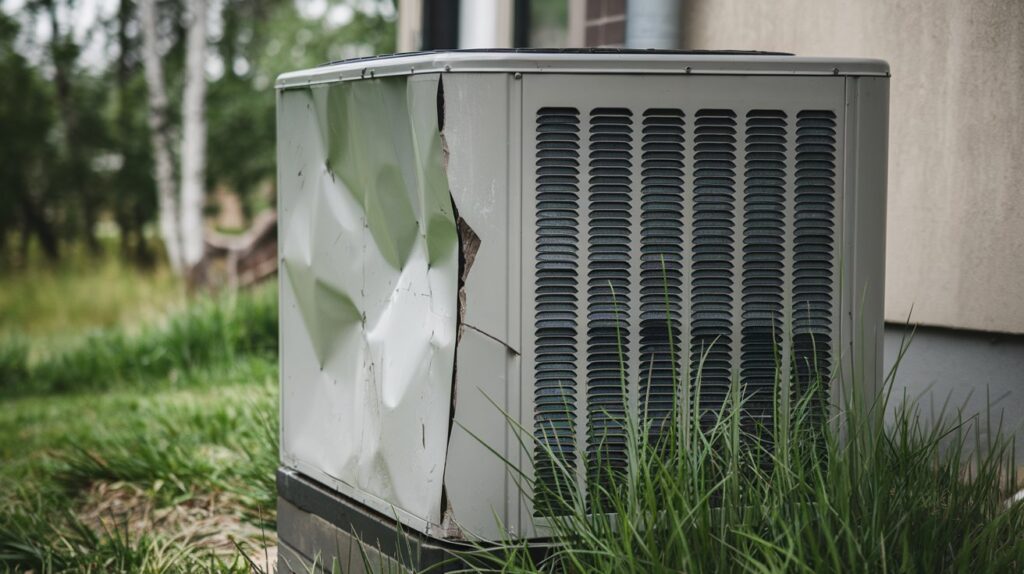Air conditioning systems are designed to run in cycles that help maintain a stable indoor temperature. But when those cycles become unusually brief and frequent-a problem known as short cycling-it can lead to a range of issues from discomfort to increased energy bills and even long-term system damage. Short cycling prevents your AC from completing a full cooling cycle, forcing it to stop and start repeatedly. This not only strains your unit but can also be a sign of underlying mechanical or electrical problems. We will explore the primary causes of short cycling and what can be done to correct it effectively. Whether it’s a minor issue like a dirty filter or a more complicated one involving the compressor, understanding the root of the problem is the first step toward a reliable and long-lasting air conditioning solution.
Why Is Your AC Short-Cycling? Key Reasons and Fixes
Oversized AC Unit
One of the most common causes of short cycling is an air conditioning unit that is too large for the space it’s intended to cool. Oversized systems cool rooms quickly but shut off before they complete a full cycle. This frequent on-and-off behavior doesn’t allow the system to remove humidity properly, resulting in an uncomfortable indoor environment despite the cool air. Additionally, this constant starting and stopping puts extra wear on components like the compressor and blower motor. Over time, this added stress can lead to more frequent breakdowns and a shortened system lifespan.
Unfortunately, replacing or downsizing an oversized AC system can be costly, but it may be the only way to achieve consistent performance. The most practical solution often involves a professional load calculation and installing a properly sized unit that matches the unique demands of your space. For homeowners, relying on accurate diagnostics and timely air conditioning repair in Tallahassee is the first step toward long-term comfort and energy savings.
Thermostat Placement Issues
The location of your thermostat plays a critical role in how your AC system operates. If the thermostat is installed near a window, in direct sunlight, or too close to a supply vent, it may misread the actual temperature of the room. This can cause the system to think the space has reached the desired temperature prematurely, leading to short cycling. In some cases, the thermostat may even be outdated or malfunctioning, sending inaccurate signals to the cooling unit. This constant miscommunication results in the AC turning on and off rapidly, which increases electricity usage and reduces overall system efficiency.
The most effective remedy is to reposition the thermostat to a central location away from heat sources, windows, and vents. If your thermostat is older, upgrading to a programmable or smart thermostat could offer more precise temperature control and help eliminate short cycling. Accurate temperature sensing ensures the system runs only when necessary, promoting efficiency and indoor comfort.
Clogged Air Filters
Dirty or clogged air filters are a surprisingly frequent trigger for short cycling. When filters become blocked, they restrict airflow into the system, which can cause the evaporator coils to freeze. Once the coils freeze, the system may shut down prematurely to prevent further damage, leading to short cycling. In addition to disrupting the cooling cycle, clogged filters force the AC to work harder than necessary, increasing wear on internal components and driving up energy costs. Replacing air filters regularly-typically every one to three months, depending on usage and air quality-can prevent this issue. In environments like Tallahassee, where humidity levels are often high, filters may need more frequent replacement to avoid build-up. Routine maintenance, including filter replacement and system cleaning, is one of the simplest and most cost-effective ways to ensure consistent performance. Maintaining clear airflow helps the system operate efficiently and reduces the likelihood of short cycling.
Low Refrigerant Levels
Refrigerant is essential for cooling your home effectively, and low levels can significantly disrupt system operations. When the refrigerant is low, the AC has to work harder to cool the air, which can cause pressure changes that trip safety switches and cause the unit to turn off prematurely. As the pressure stabilizes, the system may turn back on again, only to shut off shortly after-creating a classic short cycling pattern. This problem is often caused by leaks in the refrigerant lines, which need to be located and repaired before recharging the system.
Operating your AC with insufficient refrigerant can damage the compressor, one of the most expensive parts to replace. Detecting and addressing refrigerant issues promptly is crucial to protecting your unit and ensuring efficient operation. Licensed technicians in Tallahassee are equipped to identify refrigerant leaks and restore the correct charge, eliminating the cycle interruptions and restoring comfort to your space.
Short cycling is more than just an inconvenience-it’s a sign that something within your air conditioning system is not functioning as it should. Whether caused by an oversized unit, thermostat misplacement, clogged filters, low refrigerant, or electrical issues, each scenario puts unnecessary stress on your AC and increases the risk of premature failure. Left unchecked, short cycling can drive up energy costs, degrade indoor air quality, and reduce overall comfort in your home. If you notice your AC starting and stopping frequently, addressing it quickly can save you from more expensive complications down the line. With the right attention and support from knowledgeable technicians, your system can return to smooth, efficient operation and help you stay comfortable even during Tallahassee’s hottest days.

